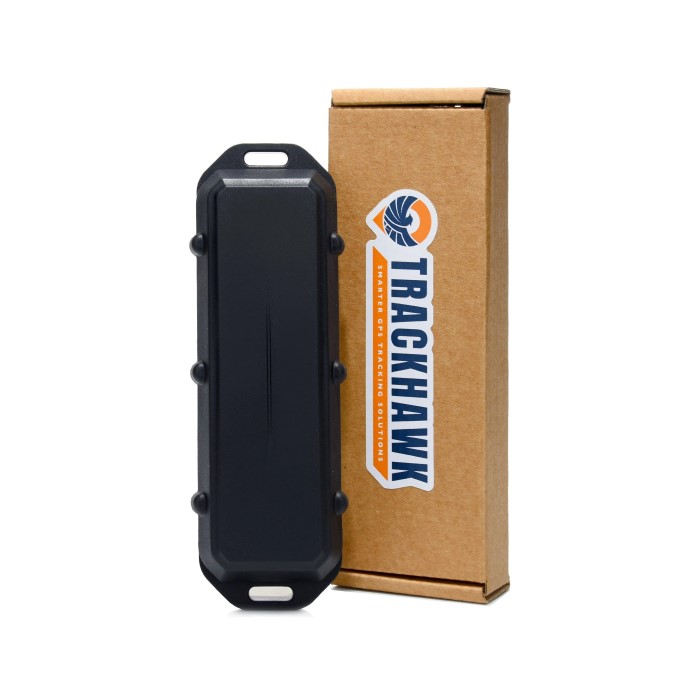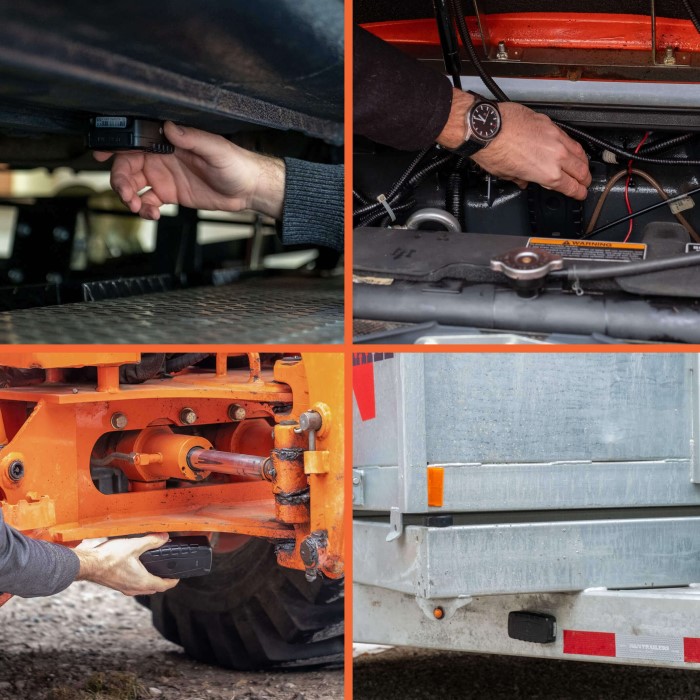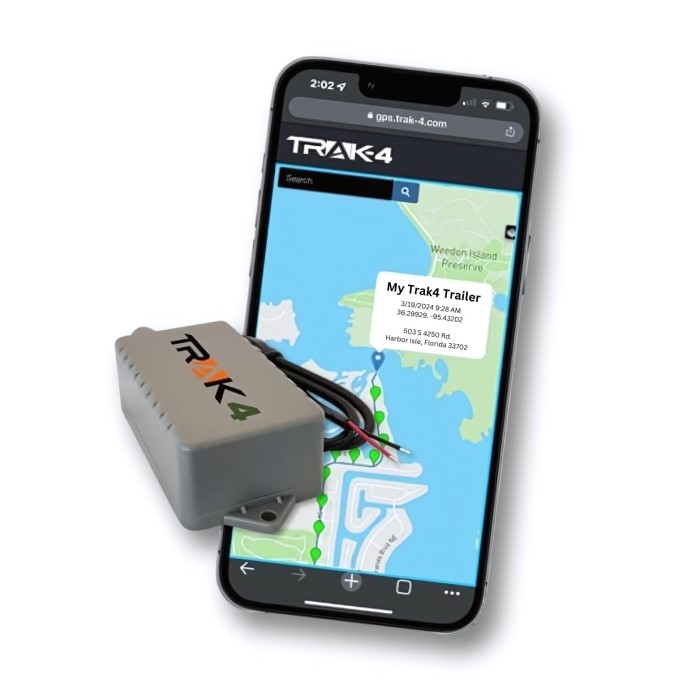Introduction to GPS Trackers for Trailers
In today’s competitive logistics and transportation world, effective management of assets is crucial for fleet owners. One highly effective tool that has gained popularity is a gps tracker for trailer applications. This technology provides numerous advantages, including enhanced security, greater operational efficiency, and improved fleet management capabilities. A GPS tracker not only allows for real-time tracking of a trailer’s location but also plays a significant role in protecting valuable cargo from theft and loss. This comprehensive guide will delve into various affordable GPS tracker solutions for trailers, outline their benefits, and provide insight into best practices for installation and use.
![]()
The Benefits of Using a GPS Tracker for Trailers
Enhanced Security Measures
One of the foremost reasons fleet owners invest in GPS trackers is to bolster security measures. Trailers often contain high-value assets, making them prime targets for theft. The presence of a GPS tracker serves as a major deterrent for potential thieves, as the likelihood of getting caught increases significantly.
- Real-Time Alerts: Many GPS tracking systems come with real-time alerts, notifying fleet managers immediately if a trailer moves without authorization. This prompt response can prevent theft before it happens.
- Geofencing Capabilities: Geofencing allows fleet managers to create virtual perimeter boundaries. If a trailer crosses these boundaries, an alert is sent, enabling swift action.
Improved Operational Efficiency
Another noteworthy advantage is operational efficiency. The data collected from GPS trackers can significantly enhance how fleet operations are managed.
- Route Optimization: Analyzing movement patterns helps fleet managers identify the most efficient routes. This not only saves time but also reduces fuel costs.
- Documentation and Reporting: GPS trackers automatically log various data points, such as travel time and stops. This information can be utilized for accurate reporting and compliance, reducing administrative burdens.
Peace of Mind for Fleet Owners
The capability to monitor trailers in real-time provides fleet owners with peace of mind. Knowing the exact location of a trailer and having instant access to information about its movements is invaluable.
- Reduced Anxiety: Fleet owners experience less anxiety about the safety of their trailers and cargo, leading to better focus on other aspects of their business.
- Enhanced Accountability: With GPS tracking, fleet managers can hold drivers accountable for their routes and behaviors, improving overall efficiency.
Types of GPS Trackers Available for Trailers
Fleet owners can choose from several types of GPS trackers to meet their specific needs. Understanding the differences can aid in making an informed decision.
Hardwired GPS Trackers
- Permanent Installation: Hardwired GPS trackers are directly connected to the trailer’s power system and provide continuous power, making them reliable for long-term use.
- Professional Installation Needed: These devices usually require professional installation, which may incur additional costs. However, they are less likely to be tampered with due to their hidden nature.
Battery-Powered GPS Trackers
- Portability: Battery-powered trackers are easy to install and can be placed at various locations on the trailer, offering flexibility.
- Regular Maintenance Required: Users must regularly replace or recharge the batteries, which could lead to downtime if not managed properly.
Solar-Powered GPS Trackers
- Eco-Friendly Solution: Solar-powered trackers harness energy from the sun, providing an environmentally friendly option.
- Dependence on Sunlight: However, their effectiveness may be compromised in areas with limited sunlight exposure.
Real-Time Tracking Solutions
- Instant Access to Information: Real-time tracking solutions allow logistics managers to have immediate access to a trailer’s location. Fleet managers can easily check the position of their trailers via mobile apps or online platforms.
- Advanced Analytics: Many real-time GPS systems also come with analytics features that provide insights into vehicle performance and help identify operational inefficiencies.
How to Choose the Right GPS Tracker for Your Trailer
When selecting a GPS tracker for your trailer, it is important to consider several key factors to ensure that you select the best option for your needs.
Assess Your Requirements
- Understand Your Needs: Different operations have varying tracking requirements. Determine whether you need real-time tracking, historical data, or simple location services.
- Prioritize Features: Distinguish which features are most important for your business—security, efficiency, or reporting tools.
Budget Considerations
- Pricing and Value: Determine a budget for your GPS tracker while ensuring you invest in reliable technology. Cheaper options may save money upfront but could lead to higher costs due to inefficiencies or potential theft.
User-Friendly Features
- Interface Simplicity: A user-friendly interface is essential. Look for trackers with intuitive dashboards that simplify monitoring and reporting.
- Alert Systems: Opt for devices that provide customizable alerts, allowing you to tailor notifications according to your business priorities.
Durability and Weather Resistance
- Consider Environmental Factors: Trailers often operate in harsh weather conditions. Choose trackers that are weatherproof and built to last.
- Material Quality: A well-constructed GPS device will typically withstand extreme temperatures and humidity, ensuring consistent performance.
Installation Requirements
- Ease of Installation: Some trackers offer DIY installation while others may necessitate professional help. Assess your ability to install the device based on your technical skills and available resources.
How to Install a GPS Tracker on Your Trailer
Once you’ve selected the appropriate GPS tracker for your trailer, proper installation is key to ensuring optimal performance.
Choose the Right Location
- Discreet Positioning: Ideally, the tracker should be hidden from sight yet easily accessible for maintenance. Common locations include inside the trailer’s wheel wells, undercarriage, or within enclosed compartments.
Follow Manufacturer Guidelines
- Installation Instructions: Refer to the specific installation instructions provided by the manufacturer, as different devices have unique installation requirements.
- Secure Connections: Ensure that all electrical connections—if applicable—are secured and insulated to prevent short-circuiting.
Test the Tracker After Installation
- Functionality Check: After installation, test the tracker to confirm that it is sending accurate location updates. Monitoring its performance immediately ensures that you can address any issues promptly.
Best Practices for Using a GPS Tracker for Your Trailer
Utilizing a GPS tracker effectively goes beyond installation. Implement these best practices to maximize the benefits you get from the device.
Regular Monitoring and Usage
- Constant Vigilance: Make it a priority to consistently monitor your trailers. Regular checks on their whereabouts can help you spot potential issues early.
- Utilize Tracking Data: Regularly review the data provided by the GPS tracker to assess your operations and identify areas that may require improvement.
Set Up Geofences
- Virtual Boundaries: Implement geofencing features to create virtual boundaries around critical areas. Alerts notifying you when a trailer enters or exits these boundaries can significantly enhance security.
- Custom Notifications: Customize notifications based on your specific needs, enabling proactive management of trailer movements.
Educate Your Staff
- Team Training: Ensure that your drivers and fleet personnel understand how to effectively use the GPS tracking system. Solid training ensures that your team gets the most value from the technology.
- Encourage Best Practices: Foster a culture of accountability where employees understand the importance of tracking and regularly check in on their assigned trailers’ statuses.
FAQ: Common Questions About GPS Trackers for Trailers
What is the best way to track your trailer?
The best way to track your trailer is to install a high-quality GPS tracker designed specifically for trailers. This device provides real-time updates and alerts that help you protect your assets.
Can you install a tracker on a trailer?
Yes, you can install a GPS tracker on a trailer. There are various options available depending on your preference. Most devices are straightforward to install and come with instructions.
Where to hide the tracker on a trailer?
The tracker should be hidden in a discreet location to prevent tampering. Common areas include under the trailer chassis, inside wheel wells, or within locked compartments.
Can a GPS tracker work without cell service?
Yes, many GPS trackers have the capability to store location data and transmit it once they reconnect to a network. This ensures that tracking continues even without immediate cell service.
Conclusion: Elevate Your Fleet Management with a GPS Tracker for Trailers
Investing in a gps tracker for trailer solutions is a strategic decision that enhances security, operational efficiency, and peace of mind for fleet owners. By understanding the features, installation practices, and usage tips discussed in this article, you can make informed choices that align with your specific tracking needs.
Selecting the right GPS tracker and implementing best practices will not only secure your valuable assets but also streamline your operations, making them more efficient. The potential cost savings and increased accountability will empower fleet owners to focus on other essential business processes. Embrace the technology of GPS tracking to elevate your trailer management and optimize your logistics operations today. With the right tools in hand, you can ensure that your fleet runs smoothly, protecting your investment and delivering the best possible service to your customers.



